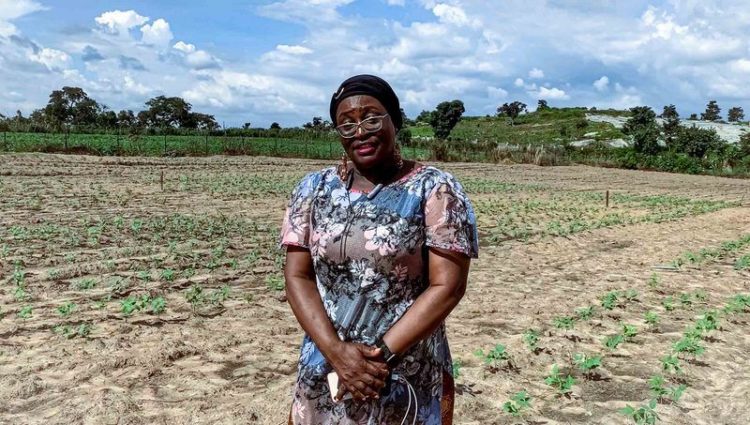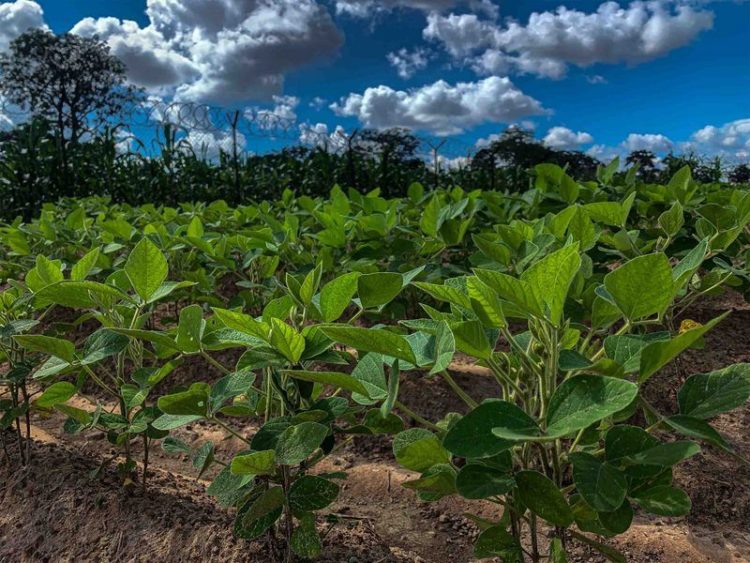Controversy still surrounds genetically modified (GM) foods in many parts of Africa but for one woman pushing a continental farming revolution, the potential results of planting a crop of modified cowpeas are simply too significant to resist.

It’s been over a year since Nigeria released the world’s first genetically modified cowpea – also known as the black-eyed pea – and the legume’s most vocal supporter is thrilled with the results. So much so that she has taken to airwaves across the country advocating that farmers take advantage of the made-in-Nigeria, Pod Borer Resistant Cowpea, or PBR Cowpea, to massively increase yields.
Country Director for Nigeria’s Open Forum on Agricultural Biotechnology in Africa (OFAB), Dr Rose Gidado, has even become known as Mama OFAB, thanks to her tireless campaigning to see the genetically improved legume, which is resistant to the pest Maruca vitrata, planted by farmers. Her excitement, she said, is based on the results seen so far.

“We are beginning to get feedback from farmers across the country. One young farmer in Kano reported that he was given 1 kilogram. In the trial phase, he planted slightly more than one quarter. After harvest he had almost 64 kg, meaning it was over 100% difference in yield. The farmers also saved the cost of production by the reduced number of sprays before harvest,” she said enthusiastically.
Gidado said that similar results had been recorded from multiple trials across the country.
Gidado has been on almost every broadcast station across the nation, travelling across multiple states to speak with anyone and everyone who cares to listen, advocating for the acceptance of PBR Copwpea, a genetically modified food crop adopted specially for Africa by Nigerian researchers. Her goal: making sure that Nigeria reaches food self-sufficiency.
The Nigerian Biosafety Management Agency (NBMA) approved the commercial release of genetically modified cowpea to farmers in Nigeria in January of 2019, following a devastatingly poor harvest thanks to the devastation caused by the pod borer bug.
The National Committee on Naming, Registration and Release of Crop Varieties approved registration and commercial release of the pod borer resistant PBR Cowpea at a meeting held in Ibadan on December 12, 2019.
According to a study by the Programme for Biosafety Systems (PBS) and the International Food Policy Research Institute (IFPRI) under the Biosafety and Biotechnology Rapid Assessment and Policy Project (BioRAPP), cowpea exports could fetch Nigeria 638 million US dollars yearly.
While worries about the impacts to biodiversity and dependency on single suppliers have led many African nations to follow European states in forbidding genetically modified (GM) crops, the imperative to feed well over a billion people in Africa has started to push those arguments aside.
“I am happy that countries across Africa, like Ghana, are coming on board. It is a strength to Nigerians and to Africa,” Gidado said.
The new cowpea variety, officially named SAMPEA20-T, was developed by scientists working for the Institute for Agricultural Research, at the Ahmadu Bello University, Zaria, led by Professor Prof Mohammed Ishiyaku, in collaboration with various partners under the coordination of the African Agricultural Technology Foundation.
According to Gidado, more than 2,000 Nigerian farmers have planted PBR Cowpea. The likely result is that the country will find itself a long way down the road to self-sufficiency in a commodity that would normally see around 500,000 tonnes being imported annually to meet demand.
Cowpea (Vigna unguiculata) is a vital staple crop in West Africa, consumed daily by more than 200 million people and provides an important source of income. Hence the need to improve local production and limit importation says Gidado.
Gidado revealed that there are other GM projects in the pipeline that will help Nigeria further along the road to food self-sufficiency, including NEWEST Rice, TELA Maize, Vicat Plus Cassava, and HT Soy.
The acceptance of modified crops by Nigeria may well open the flood gates for other African nations to accept GM crops – with a consequent boom in farming a likely result. South Africa, one of the first countries in Africa to grow GM crops, currently produces a considerable surplus in maize, as a result. It now sells that maize all over Africa. The new cowpea variety is expected to be adopted by several West African countries, including Ghana, Burkina Faso and Niger.
“I work hard to convince government, farmers and the consumers because it’s my way of combating food security across the continent, the advantages are enormous, we can’t miss it,” Gidado added.
bird
